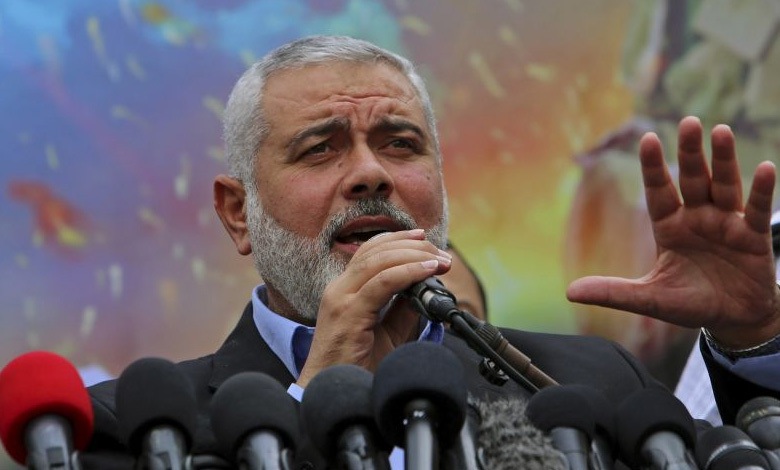Doha is in an untenable position as the conflict between Israel and Hamas intensifies. Being a longtime supporter of the Muslim Brotherhood, Qatar has significant sway over Hamas, the Palestinian branch of the organization. In the near term, that presents a big opportunity. Qatar is an important player in the current diplomatic game because of its close ties to the Islamist organization based in Gaza. However, for the same reason, Doha is about to run the risk of being held accountable for its history of endorsing such radical Islamist organizations, particularly Hamas.
Doha has long operated as an agent, and historically, this has been advantageous for the Gulf state. Qatar gave the U.S. an outlet for talks with the Taliban by permitting the organization to open an office there. Thus, Doha helped to finalize the Trump administration’s agreement to remove American forces from Afghanistan, which President Joe Biden implemented in 2021.Qatar now seeks to take on a similar role. Ismail Haniyeh, the de facto leader of Hamas, and most of the organization’s exiled political bureau now reside in Doha. In addition, Qatar has played a significant role in financing Gaza’s economy ever since Hamas took over the region in 2007. Qatar has been funneling hundreds of millions of dollars a year into the enclave with the approval of Hamas’s enemies, the United States, even Israel, and the Palestinian Authority, which is dominated by Fatah. That money, among other things, went towards paying government workers’ salaries, which allowed a significant number of Gazan families to maintain their standard of living despite Israel and Egypt’s virtual blockade.
Read More: Exclusive: Saudi Alliance Vindicated, Yemen’s Claims Failed!
Qatar has additionally long been an important American ally in the Middle East. Additionally, the primary Israeli diplomatic presence in the region before the Abraham Accords, which normalized Israel’s relations with a few of Qatar’s Gulf Arab neighbors, was a trade office in Doha that was operational for several years in the late 1990s. Neither Egypt nor Turkey has shown any desire to mediate the current situation with Hamas. Thus, Qatar is making an effort to hold onto its advantageous position as a helpful mediator for both parties.
However, that diplomatic advantage might not last long. When the hostage crisis is resolved, Qatar is probably going to come under intense pressure and criticism, regardless of whether it ends tragically or with negotiated releases involving potential prisoner swaps. Even the pragmatic acceptance that Hamas once enjoyed among Western nations has been lost due to the severity of its attack on southern Israel; most now consider the group to be an extreme terrorist organization similar to al-Qaeda and ISIS.
For a long time, Qatar’s main strategy for exerting influence in the Arab world has been its liaison with Islamist organizations, especially its official backing of Al Jazeera Arabic. Following 2011, Qatar developed the belief—and Al Jazeera Arabic boldly forecasted—that new Arab democracies would be swept in by a wave of Islamist rule. Rather, the Brotherhood government that was elected in Egypt turned out to be even less popular than the dictatorship of Hosni Mubarak. Elections in Tunisia and Libya were lost by Islamists. The Brotherhood was pushed to the periphery of Syria.
Given the waning influence and stature of the Brotherhood, Qatar’s wager has produced very little profit. And now, Doha’s reckless strategy may have to be addressed in light of Hamas’s disastrous rebranding in the eyes of the West. The Qataris might have to decide between their long-standing investment in Hamas and their valuable ties to Washington. The United States may even compel Qatar to remove the Hamas leaders and cadres residing in Doha.
Qatar’s relationship with the Pentagon, however, continues to be its strongest suit. President Donald Trump first accused Doha of funding terrorism during the regional conflict that started in 2017 and led to a three-year boycott of Qatar by Saudi Arabia, the UAE, Bahrain, and Egypt. The Department of Defence, on the other hand, had a very different perspective: the campaigns in Iraq and Afghanistan were centered at Qatar’s Al Udeid Air Base, which is also home to the forward headquarters of the United States Central Command. The Pentagon’s position eventually won out, and the United States pushed for the boycott to end.
The leverage that Qatar has is clear-cut. The nation agreed to give the United States de facto extraterritorial jurisdiction over the base at Al Udeid, treating it as if it were sovereign American territory rather than Qatari territory, despite having funded the base’s construction and maintenance in large part. It is therefore not surprising that the Defence Department views this as an invaluable resource that is strategically essential to US interests.
Doha will undoubtedly cling to this necessity in the reckoning to escape responsibility. But even that might not be sufficient in the wake of Hamas’s horrific killing spree in southern Israel. Furthermore, Qatar’s official statement following the attack on Israel on October 7th, which did not criticize Hamas but instead placed all the blame for the carnage on Israel, will not help its case. Compared to nearly every other Gulf Arab nation, this stood in stark contrast.
In the end, Qatar might gain from being forced to abandon its disastrous regional strategy of supporting radical religious and populist groups that, like Hamas, have shown to be rash allies eager to support political violence. While Qatar has not attempted or is unable to exercise direct control over the Brotherhood-aligned movements, other regional powers, most notably Turkey and Iran, have utilized foreign proxies with great effectiveness. Doha has been twirling between its Western and Arab partners and its Islamist allies for far too long. The music abruptly ended.


















